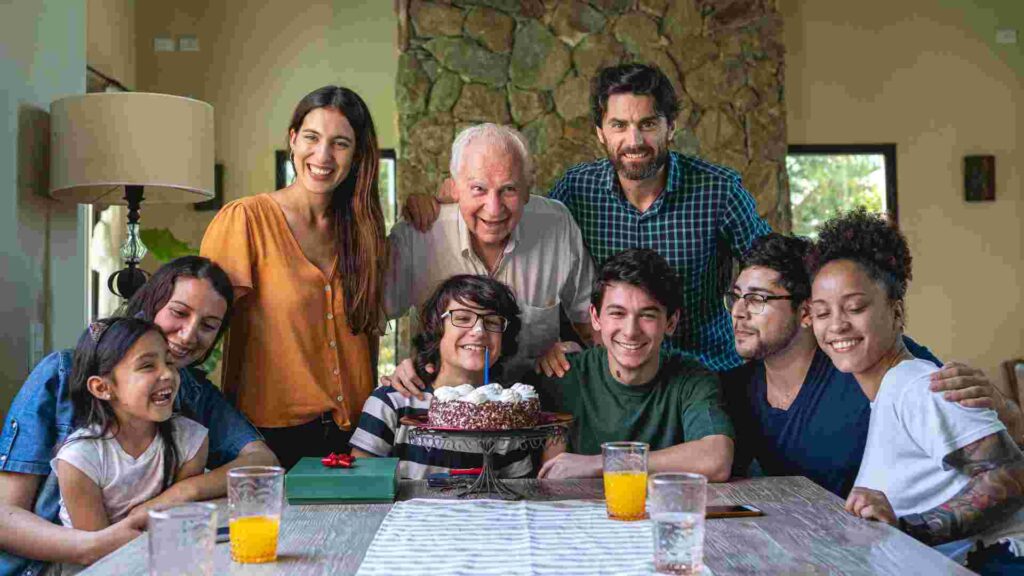Estate planning for blended families presents unique challenges. Unlike traditional family structures, reports Barron’s article titled, “When Remarrying Creates a Blended Family: Advice From Financial Pros,” blended families often involve complex relationships and diverse financial backgrounds, making the process of estate and financial planning more intricate. This article provides guidance for blended families in Minneapolis and beyond on identifying overall estate planning goals and concerns and identifying heirs to protect new goals and loved ones.
What Constitutes a Blended Family?
A blended family typically includes two adults in a second or subsequent marriage or partnership who have children from a previous marriage or relationship and may also have children together. This structure can introduce a variety of emotional and financial complexities into the estate planning process.
Why Is Estate Planning for a Blended Family Different?
The interplay of different relationships and financial histories in blended families necessitates a more nuanced approach to estate planning. The mix of stepparents, stepchildren and biological children can vary the spouses’ priorities and goals for their current family structure as well as any future inheritance and retirement planning. The goal is to ensure fair and equitable asset distribution, while respecting the family dynamics.
How Do Family Dynamics Impact Estate Planning?
The presence of children from previous marriages and the division of assets between them and the current spouse adds layers of complexity to estate planning. Planning requires identifying overall goals and concerns, identifying intended heirs and beneficiaries and reviewing existing financial obligations and designations.
Should Blended Families Be Mindful of a Divorce or Ex-spouse Impacting Their Plan?
As a general rule, by law, a divorce decree that severs a marriage also severs any reference to the former spouse in a will or trust document. This means that a divorce decree automatically deletes an ex spouse from the will of the other, regardless of whether or not the will was amended or changed. Read more in our article, Can My Ex Get My Estate?
However, major life changes are pivotal times that necessitate regular reviews and updates of estate plans to ensure that they remain relevant and effective for the new family.
How Do You Address Children from Previous Marriages in Estate Plans?
Many Minneapolis parents wish to leave their children an inheritance but are unsure how to balance their priorities between biological and stepchildren. It’s crucial to consider the needs and rights of children from previous marriages to ensure that your children are all included in your inheritance and decision-making if desired, while ensuring fairness to the current spouse and any mutual children.
Why Is Open Communication Crucial in Blended Families?
Open communication helps address potential conflicts and ensures that all family members’ needs and expectations are considered in the estate planning process. It is especially important as a family to discuss financial habits, asset distribution preferences and future plans candidly. This approach helps to create a comprehensive and conflict-free estate plan. Discuss questions about your mutual financial goals with your spouse. Ask yourself and each other questions like: Are you concerned about future divorce or lawsuit protection of the estate? What does each family member need? What are each spouse’s expectations for who gets what assets in your combined or separate estates? How will you create a plan that ensures financial security and protects children from previous relationships? Working with a knowledgeable estate lawyer is a way to ensure that your discussions, goals and plans are addressed, while helping to navigate the emotional issues inherent for many families when discussing finances. An estate professional has the training to balance fairness and practicality, ensuring that the division of assets does not unfavorably impact any family member.
How an Estate Planning Attorney Can Help Properly Account for the Children and Surviving Spouse
In traditional families, all assets usually go to the surviving spouse with few restrictions. In the case of second or subsequent marriages, there are ways to provide for the surviving spouse that only an experienced estate lawyer can do. Furthermore, an attorney can guide blended families about how to decide who they will designate to make financial and medical decisions in the case of their disability or incapacity. Vague wording in estate documents that may result from online DIY will or estate document drafting sites can lead to family disputes and misunderstandings once you are gone. Specificity is key to avoiding conflicts and ensuring that the estate plan reflects the new mixed family’s intentions.
Trusts as Solutions for Blended Families
A new estate plan should be created for blended families to provide for the surviving spouse and the deceased spouse’s children. One way is to retain the deceased spouse’s assets in a trust. The trust provides for all the income to the spouse and discretionary principal distributions. When correctly drafted and executed, trusts can also help to avoid probate. A Qualified Terminal Interest Trust (QTIP) is one solution that may permit the trust to qualify for the marital deduction for estate tax purposes.
Marital trusts are another option that can be an effective tool for blended families. They allow for the transfer of assets to the surviving spouse, with the remainder going to children as secondary beneficiaries upon the death of the second spouse.
The selection of trustees is an important decision for a blended family. In this case, it may be better to have a professional fiduciary who is not emotionally engaged with one side or another to alleviate any emotional baggage.
What Risks of Ignoring Estate Planning Might Blended Families Face?
Neglecting estate planning can lead to unintended consequences, such as creating financial hardships for surviving family members. Professional financial and estate advisors play a crucial role in encouraging blended families to be proactive in their financial and estate planning, ensuring that estate plans are up-to-date and reflective of the family’s current situation.
Conclusion
In conclusion, estate planning for blended families requires a thoughtful and tailored approach. A Minneapolis estate lawyer can provide financial and estate planning options for blended families once they understand the new family’s unique dynamics, facilitating open communication and ensuring specificity in legal documents. Regular reviews and updates of a family’s existing financial and estate planning documents are essential to adapt to life’s changes and maintain an estate plan that aligns with the family’s evolving needs and goals. Schedule a call with Minneapolis Stone Arch Law Office to create a new plan or review an existing one for your new family.





